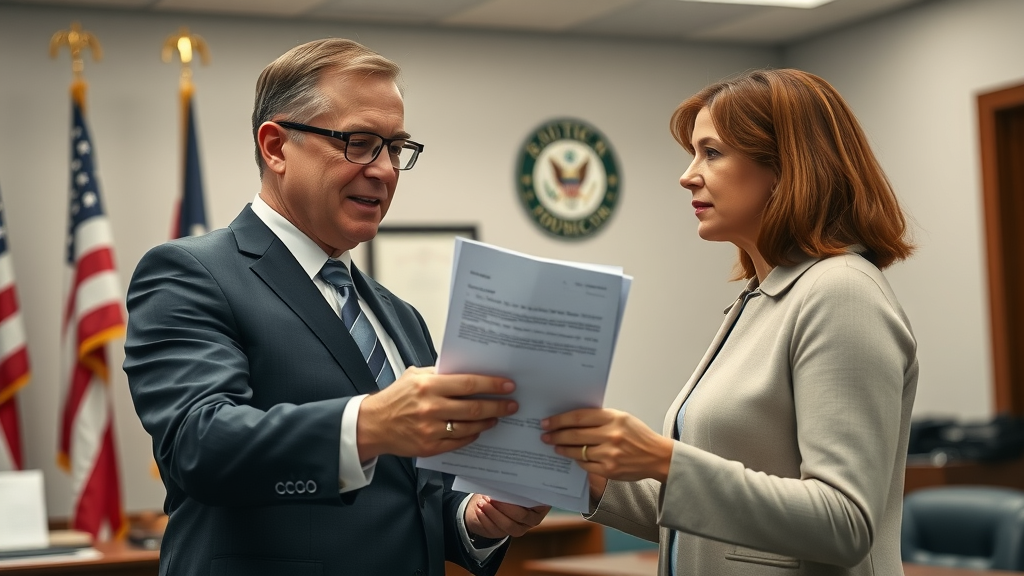What happens if someone can't pay for a funeral? Essential options
Have you ever wondered what truly happens when a family simply cannot afford to pay for a funeral? Funeral costs are rising, and more people are facing the reality of financial hardship when a loved one passes away. This guide uncovers practical choices, assistance programs, and the steps you can take if you’re struggling to cover funeral expenses. Learn how compassion, planning, and available resources can help families say goodbye—no matter their financial circumstances.
Captivating Inquiry: What happens if someone can't pay for a funeral?
If you or someone you know is worried about what happens if someone can't pay for a funeral, know that you’re not alone. With the cost of a funeral reaching thousands of dollars, many families feel overwhelmed by the financial burden. Yet, affordable funeral options, government and charity assistance, and community support can offer dignity, closure, and respect—regardless of budget. This article dives deep into the options, rights, and resources that can help you navigate a difficult time without the added stress of unmanageable funeral costs.

Challenging the Cost of Saying Goodbye: Why This Question Matters
The significance of understanding funeral costs goes far beyond dollars and cents. When a family member passes, grief is compounded by financial stress if there’s no plan or means to pay for a funeral. Too often, unexpected expenses or a lack of life insurance put loved ones in a difficult spot, sometimes even delaying closure. By shedding light on what really happens when someone can’t afford a funeral, we empower families to ask the right questions, make informed decisions, and discover solutions that respect both their loved one’s memory and their financial situation.
What You'll Learn About What Happens If Someone Can't Pay for a Funeral
- The reality of funeral costs and payment options
- Government and charity assistance programs
- Alternatives to traditional funeral services
- Your rights and choices if you cannot afford a funeral
Understanding Funeral Cost: What Happens If Someone Can't Pay For a Funeral
The cost of a funeral is often a shocking revelation for grieving families. A traditional funeral, with viewings, a casket, and burial, can exceed $7,000, while even a simple cremation averages $1,500 to $3,000 nationwide. These costs include the funeral home’s fees, preparation, transportation, burial or cremation, and the funeral service itself. Unfortunately, many don’t realize expenses like death certificates, flowers, and obituary notices add up quickly. If a family member dies unexpectedly and didn’t plan ahead of time or have life insurance, the weight of arranging a funeral—and paying for it—falls to loved ones who may be unable to cover the costs. This is why exploring assistance options and planning for affordable alternatives, such as direct cremation or community support, is so crucial.
For families navigating these difficult choices, understanding the benefits and process of pre-burial planning can make a significant difference. If you’re interested in how proactive steps today can ease future burdens, consider reading about what you must consider before starting a pre burial plan to help protect your loved ones from unexpected costs.
Breaking Down Typical Funeral Costs and Unexpected Expenses
When evaluating funeral costs, consider both common and unexpected expenses. The largest portion typically goes to the funeral home for arrangements, casket, and embalming if needed. For families struggling to afford a funeral, these “standard” services may not be necessary—or affordable. Unplanned items, like catering or upgraded transports, can take families by surprise. Those seeking lower-cost solutions often turn to cremation services or a basic burial to keep costs down. In some dire situations, families may only be able to handle paperwork and legal steps, relying on government or charity intervention for the rest. Understanding these costs in advance is key to making the most compassionate, practical, and respectful choices with the resources you have.
| Service Type | Typical Cost Range | Included Features |
|---|---|---|
| Traditional Funeral (Burial) | $7,000 – $12,000 | Embalming, viewing, casket, burial, funeral home service |
| Traditional Funeral (Cremation) | $5,000 – $7,000 | Embalming, viewing, cremation, funeral home service |
| Direct Cremation | $1,000 – $3,000 | Cremation only, no ceremony or viewing |
| Simple/Limited Burial | $2,000 – $4,000 | Immediate burial, simple casket, basic service |
| County/State Assisted Burial or Cremation | Low or No Cost | Basic disposition, legal compliance, minimal ceremony |
What Happens If Someone Dies and No One Can Pay for a Funeral?
When a death occurs and family or friends cannot pay for a funeral, pressing questions quickly arise. Who is responsible for the cost? What help is available? Most states have guidelines determining legal responsibility for funeral expenses, but when there is no estate or funds, government intervention may be required. State and local programs step in to guarantee a legal, respectful disposition of the body—even when budgets are tight or family is absent. Options may range from direct cremation to county-organized burials, ensuring every deceased person receives dignified handling, regardless of financial hardship. The specifics, though, differ based on local statutes and available funding, making it key to research area-specific solutions.
Who Is Legally Responsible For Funeral Costs?
By law, funeral costs typically fall to the deceased’s estate first. When no money or assets are present, next-of-kin—such as a spouse, adult child, or parent—may be asked to cover the cost of a funeral, but generally only if they voluntarily sign a contract with a funeral home. No one can be “forced” to take on these expenses without consent, especially if they lack resources. Absent funds or willing family, public health departments often step in, leveraging public programs and county budgets to ensure a basic burial or cremation. Understanding this chain of responsibility is important, so families are prepared and not burdened unexpectedly by the cost of a funeral.
State and Local Government Programs: What To Expect
Across the United States, government programs exist to prevent the abandonment of unclaimed or unpaid funeral needs. Options range from small funeral stipends to full coverage of a simple burial or cremation. Eligibility often depends on income, assets, and circumstances of the deceased. Applying usually involves providing documentation and sometimes a waiting period. The support provided helps cover the most basic legal requirements—a respectful disposition, even if there’s no traditional service or ceremony. For struggling families, these safety nets can provide peace of mind during an otherwise turbulent time, without creating future debt or financial hardship.

What Happens To the Body If No One Can Pay?
If no one can pay for a funeral and there’s no estate or willing family, county or state authorities must provide a legal resolution. This often means transferring the body to a county facility for a basic, dignified burial or direct cremation. The process may include storing remains briefly while authorities attempt to locate next-of-kin before local government arranges the final disposition. Personal effects are typically returned to surviving relatives, or managed according to law. The state’s intervention ensures there’s no neglect or indignity—and people are laid to rest in compliance with health and safety codes, regardless of their economic situation.
“When families cannot pay funeral expenses, the county or state may intervene to ensure a legal disposition.”
What Do Funeral Homes Do When You Can't Pay?
The funeral home industry is guided by strict laws and compassionate practices. When a family can't immediately pay for a funeral, directors often explain their policies clearly and offer a range of lower-cost or incremental solutions. Most funeral homes require a deposit or clear agreement before arranging a full suite of funeral services, but they may steer families toward direct cremation, simple caskets, or delayed payment plans. Open communication about limitations and preferences helps ensure that the final arrangements are dignified and within the family's ability to pay. Some funeral directors may even help connect families with local charities or government aid—making it crucial for those in need to ask, clarify, and negotiate available options.
Funeral Home Payment Policies and Common Practices
Each funeral home establishes its own payment requirements, but transparency is legally mandated. Before any funeral arrangements proceed, families are provided with a detailed funeral cost breakdown, outlining all possible fees. If a family simply cannot afford a funeral, options might include selecting less expensive service packages, opting for community assistance, or choosing direct cremation—often the most affordable path. Many funeral directors recognize the sensitivity of these situations and strive to accommodate families’ needs while maintaining legal compliance. It’s always best to ask about all available choices, payment plans, or sliding scale options right from the start.
Negotiating Funeral Costs and Services With a Funeral Director
Families often feel overwhelmed facing funeral costs, but open dialogue with the funeral director is encouraged. Funeral homes may be able to adjust their service offerings, substitute more affordable products, or suggest payment plans and local aid sources. By explaining your financial constraints, you enable the staff to partner with you in finding respectful, budget-appropriate solutions. Sometimes, a funeral director can help facilitate applications to government programs or charities that contribute to the cost of a funeral—especially if there’s documented financial hardship.

Low-Cost Funeral Arrangements and Payment Plans
If you’re struggling to pay for a funeral, it’s important to know that several low-cost and flexible options exist. Direct cremation skips the ceremony and viewing, reducing overall expenses drastically. Some communities offer religious, neighborhood, or charity-based support, helping cover costs or offer basic services. Crowdfunding—turning to friends, family, and the online public—has become a popular way to ease the burden of final expenses, with sites dedicated to memorial fundraising. Payment plans may allow families to split costs over time. The best approach is to be very clear about your budget and needs when meeting with your funeral home or director.
- Direct cremation options
- Community or religious support
- Crowdfunding and charity assistance
How Do You Have a Funeral for Someone With No Money?
Planning a dignified farewell with limited or no funds is possible. If you have no money to pay for a funeral, you can seek out programs designed for such situations, select minimal services, or rely on community and faith-based groups for basic arrangements. The key is knowing that affordable funeral alternatives, such as direct cremation or simple graveside services, do exist, and may even be offered at little or no cost through public agencies or charities. Partnerships with local organizations and government departments can often ensure that even those without money are treated with respect and dignity in their final farewell.
Affordable Funeral Alternatives: Direct Cremation and Simple Burial
Direct cremation is the most cost-effective sanctioned funeral option, omitting both embalming and viewing. Without a traditional funeral service, the remains are cremated shortly after death. Family members can then receive the ashes, choosing whether to scatter, keep, or inter them later. Simple burials use basic caskets and forgo ceremonies, focusing only on legal requirements. Both options significantly lower the financial barrier, meeting both emotional and legal needs for those with tight budgets. Public cemeteries and low-cost burial grounds also support affordable final arrangements.

Seeking Help From Community Resources and Charities
Your local community can be a rich source of support when money is tight. Many religious organizations offer funeral services for members at reduced rates, and nonprofits may provide grant funding, volunteers, or direct assistance to help cover the costs. In times of loss, it’s not uncommon for neighbors or extended family members to pool resources to provide a basic memorial. Charitable groups and online platforms also enable crowdfunding, making it possible to gather small donations from a wide circle of people who want to help ease the burden of funeral expenses.
Utilizing Government Programs for Funeral Costs
For those with no means to pay for a funeral, state and local government programs are often the primary safety net. Funeral assistance can range from direct payment for burial or cremation services to issuing vouchers accepted by local funeral homes. Application processes may involve submitting proof of financial hardship and documentation of death. Support may also be available for veterans, through military burial benefits, and the Social Security Administration can provide a small death benefit to qualified survivors. Reaching out to a social worker, case manager, or funeral director ensures that no resource is overlooked.
- Assistance from religious organizations
- Veteran and military burial benefits
- Funeral expense support from local nonprofits
What Happens If You Have No One to Pay for Your Funeral?
For individuals at risk of dying alone or without any surviving connections, states have established protocols. If there’s no person available or willing to pay for the funeral, the responsibility falls to the county or local public health department. They manage unclaimed remains with dignity, often arranging a basic, respectful burial or cremation. These public funerals are minimal, but no less significant, fulfilling both legal and humane standards for handling the deceased. If you fear leaving this burden to society, consider now setting aside resources or communicating wishes with trusted friends so your choices can be known and honored.
The Role of Public Health Authorities in Unclaimed Funerals
When a person passes with no family or funds, public health authorities take control of the funeral arrangements. Typically, the local Department of Health or similar agency will transport the deceased to a municipal morgue after attempts to reach out to relatives fail. Public agencies then coordinate a minimum-standard disposition—either burial in a public cemetery or direct cremation. While these services don’t include a traditional ceremony, they ensure the body is treated with respect and the deceased are not forgotten, even when they have no living advocates or resources.
Automatic Processes: From Unclaimed Bodies to Government Burials
Local governments have automatic steps for dealing with unclaimed or indigent remains. After confirming there are no next-of-kin or estate funds, the county arranges a “pauper’s” burial or direct cremation in a communal or designated public area. Records are kept for future reference, often enabling descendants or relatives to locate graves years later. While these funerals are modest, they adhere to all public health laws and strive to offer respectful treatment, accomplishing the necessary closure for both legal and emotional well-being.
“In cases of unclaimed remains, the state will ensure a respectful burial or cremation—often at minimal or no cost to families.”

Government Programs and Financial Aid Options
When individuals or families can’t cover the funeral cost, various government programs can help bridge the gap. Each state establishes its own eligibility rules for funeral assistance, which typically target low-income households or unclaimed remains. Applying for financial assistance may require documentation of income, evidence of need, and proof of the death. Programs may subsidize or fully cover the cost of cremation services, burial, or essential paperwork, providing an invaluable safety net for struggling families and marginalized individuals.
How To Apply for Government Assistance For Funeral Expenses
Applying for government funeral aid begins by contacting your local Department of Human Services, social services, or public health department. Funeral directors can often advise on state-specific paperwork, eligibility, and available grants. Be prepared to present proof of death, your relation to the deceased, and documentation of financial need. Many offices provide staff—like social workers—to walk you through the application and liaise with funeral homes, ensuring funds or subsidies are released quickly. Veterans’ families should contact the VA; other applicants may qualify for Social Security’s modest death benefit or state-specific funeral stipends.

Life Insurance and Prepaid Funeral Policies: What Can They Cover?
Life insurance policies and prepaid funeral arrangements are among the most effective ways to prevent undue financial stress at funeral time. If the deceased had a life insurance policy, named beneficiaries can file a claim to cover the funeral costs. Prepaid funeral plans—purchased ahead of time with a funeral home—lock in coverage for specified arrangements and protect against inflation. If neither are in place, family will need to pursue alternative options, but if a policy exists, be sure to notify the funeral director so the process can be streamlined and costs covered promptly.
State-Specific Resources and Burial or Cremation Assistance
Each state maintains official programs for indigent and low-income funeral support, though the benefits differ in eligibility, payout, and coverage. Some states allocate funds for a minimal funeral service or cremation service, while others subsidize specific expenses like transportation and burial permits. Funeral directors and county social services can guide you to the right office. For military families, federal veteran benefits may pay for a plot or marker and sometimes even the full expense of a simple burial in a national cemetery.
Understanding Alternatives: Cremation Service and Direct Cremation
Selecting an alternative to a traditional funeral is often the simplest solution for families seeking to reduce funeral costs. Cremation services are rising in popularity, as they involve fewer steps, less paperwork, and no need for an expensive casket or burial plot. Direct cremation stands out as the most budget-friendly option—often required or offered through state and county programs—allowing the family to hold a separate memorial service later, on their own terms and budget.
Choosing Cremation Services as an Economical Option
Families faced with high funeral expenses will find direct cremation offers major financial relief. This basic option removes add-ons like embalming, viewing, or a formal funeral in a funeral home, instead sending the deceased for cremation as soon as legally possible. Final ashes are then returned to the family. Some cremation services offer reduced pricing for those in need, supported by government funds or nonprofit initiatives. Ultimately, direct cremation protects dignity while empowering families to grieve in their own way.

Direct Cremation Explained: The Simplest Path
Direct cremation is the simplest legal method for disposition of remains when funds are unavailable. It forgoes public ceremony, embalming, and casket purchases, making it the preferred choice for state and county funded funerals for those who can’t pay for a funeral. The body is transferred directly for cremation, and the cremains are either returned to the family or interred in a public cemetery. While this option doesn’t provide the social gathering of a traditional funeral, families can schedule a memorial service when—and if—they are able.
“Direct cremation is often the most affordable funeral option—no viewing or ceremony, but dignified all the same.” — Funeral Director
Managing Funeral Arrangements With Limited Resources
Arranging a funeral with limited funds requires prioritization, flexibility, and honest conversations with all involved. Discuss financial constraints openly with the funeral director, community leaders, or government representatives. Decide which services are legally required, emotionally important, or simply financially possible. Focus on must-have elements—disposition, permits, legal filings—and let go of extras that don't fit your budget. If resources are extremely tight, consider DIY memorials, virtual gatherings, or leveraging community networks for emotional (and sometimes financial) support.
How To Discuss Funeral Costs With Your Funeral Director
While money talk feels uncomfortable, remember that funeral homes are used to guiding families with a range of budgets. Ask for a clear, itemized price list and emphasize what is most meaningful within your means. The funeral director is your main resource for negotiating costs, identifying less expensive products, and securing eligibility for community or government help. Clear communication is the first step in ensuring the arrangements reflect both dignity for the deceased and respect for your financial reality.
Prioritizing Essential Funeral Services
When every dollar counts, prioritize only the essential funeral services that are required by law or mean the most to the family. This often means funeral disposition (burial or cremation), permits, and death certificates. Extras—like viewings, elaborate floral arrangements, or post-service gatherings—should be weighed carefully for their value versus cost. Sometimes, the most meaningful services are also the most modest, providing closure and honoring the deceased without undue hardship.
When To Consider No-Frills or DIY Funerals
“No-frills” or DIY funerals bypass the funeral home entirely, focusing instead on simple, legal compliance and family-led memorial gatherings. While not permitted in all states, DIY funerals can significantly reduce funeral costs depending on jurisdiction. Families provide transport and basic care, with only administrative fees and minimum required steps handled by professionals. This alternative is only for those willing and able to navigate complex laws and processes, but it demonstrates that respect and remembrance need not be expensive or institutionalized.
FAQ: What Happens If Someone Can't Pay for a Funeral?
- Can you be forced to pay for a family member's funeral?
- Are there free or almost-free funeral options?
- Does Social Security help with funeral costs?
- What can I do now to prevent this situation for my family?
Key Takeaways: What Happens If Someone Can't Pay for a Funeral
- You are not alone; assistance programs exist
- Direct cremation and minimal services lower funeral costs
- Negotiating and planning in advance improves affordability
- State and local governments have solutions for unclaimed remains
Conclusion: Taking Action If You Can't Pay for a Funeral
Summary of Essential Steps and Support Resources
Facing funeral expenses with limited means is overwhelming, but help is available. Explore direct cremation, talk to your funeral director, ask about community aid, and know your rights—ensuring compassionate, affordable arrangements for every family.
Final Thoughts on Managing Funeral Costs Compassionately
Funeral costs need not prevent you from honoring a loved one’s memory. By leveraging resources and focusing on what matters, families can say goodbye without financial strain.
If you’re looking to take control of your future and minimize the stress on your loved ones, exploring pre-burial planning is a wise next step. Proactive planning not only helps secure your wishes but can also lock in costs and provide peace of mind for your family. For a deeper dive into the considerations and benefits of preparing ahead, discover expert guidance on starting a pre burial plan. Taking action today can make all the difference when it matters most, ensuring your legacy is honored with dignity and care.
People Also Ask: What happens if someone can't pay for a funeral?
What happens if someone dies and no one can pay for a funeral?
Answer:
If no one is available or able to pay for a funeral, public health authorities are legally obligated to ensure a respectful disposition. This usually means a county-funded direct cremation or burial in a public cemetery, ensuring the deceased receives a dignified farewell even without private funds or surviving family.
What do funeral homes do when you can't pay?
Answer:
Funeral homes will discuss your financial limits and suggest lower-cost options such as direct cremation, simplified burials, or connect you with assistance programs. They cannot be forced to provide services without payment but often work compassionately to find reasonable solutions for grieving families.
How do you have a funeral for someone with no money?
Answer:
If you have no money, inquire about government programs, local nonprofits, or religious organizations. Choose essential services only, such as direct cremation or a simple graveside burial, and explore community fundraising for any extra needs.
What happens if you have no one to pay for your funeral?
Answer:
In cases of unclaimed remains, the state or county takes responsibility for arrangements, typically opting for the most cost-effective option—often a group or public burial or direct cremation.
When families are unable to afford funeral expenses, several options and resources are available to ensure a respectful disposition of the deceased.
Accessing the Deceased’s Funds
In many cases, funeral costs can be covered using the deceased’s bank account funds. Banks may release up to a certain amount to cover funeral expenses upon presentation of a funeral director’s invoice and a copy of the death certificate. It’s essential to consult with the bank beforehand to understand their specific requirements and avoid potential legal issues. (simplicity.co.uk)
Government Assistance Programs
For those unable to cover funeral costs, government assistance may be available. In the UK, the Funeral Expenses Payment can help cover burial or cremation fees, travel to arrange or attend the funeral, and other related expenses. Eligibility depends on the claimant’s financial situation and receipt of certain benefits. (sunlife.co.uk)
Public Health Funerals
If no funds are available and no one is willing or able to arrange the funeral, local authorities are obligated to provide a Public Health Funeral. These are basic services, typically involving a simple cremation without ceremony, flowers, or transportation for family members. While minimal, they ensure the deceased is treated with dignity. (en.wikipedia.org)
Alternative Options
Families may also consider alternative arrangements to reduce costs. Direct cremation, which omits embalming and viewing, is a more affordable option. Additionally, some may choose to donate the body to medical science, which can cover transportation and cremation costs. (trustandwill.com)
Understanding these options can help families navigate the challenging circumstances of arranging a funeral without financial means, ensuring that their loved ones receive a respectful farewell.
 Add Row
Add Row 

 Add
Add 


Write A Comment